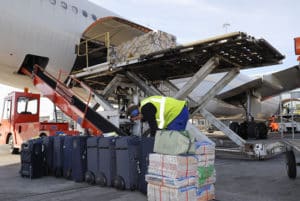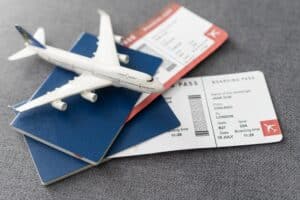Who decides to work like airport stopover officer needs to know the rules governing the functioning of national and international airports. Among the various roles played by this figure there is certainly the management of travelers' baggage, therefore it is advisable that they know the rules on the liability of the air carrier for damage to baggage.
First of all, it is good to make a distinction between the types of baggage provided for by the international legislation. There Montreal Convention of 1999 (read here), used in the practice of air transport, provides for two categories of baggage:
- checked baggage: or the so-called "hold baggage", What the passenger delivers to the airline for transport and which is not accessible for the duration of the flight;
- unchecked baggage: corresponds to "hand luggage”That the passenger can carry free of charge in the cabin of the aircraft, provided that the weight and the measures are within the limits established by the regulations.
Having made this necessary distinction, let's analyze the international legislation of the Montreal Convention regarding the carrier's liability in the event of destruction, loss or damage to baggage.
Working as an airport employee: the legislation
For checked baggage, the Montreal Convention provides a form of strict liability within the carrier, as the damage occurred on board the aircraft or during the period of time in which the carrier is holding the baggage. However, the airline may challenge its liability by proving that the harmful event was due to the nature of the baggage or to an inherent defect or vice of the baggage itself. 
On the other hand, as regards damage to unchecked baggage, including the passenger's personal items, international legislation attributes the liability to the carrier, its employees and supervisors. It will then be up to the passenger to provide proof of the harmful occurrence. It should be specified that at the basis of the applicability of the liability regime provided for by the Montreal Convention there is the element of baggage custody by the carrier, regardless of where it takes place.
A further damage that a traveler can suffer from is that of delay of baggage delivery. Unlike the previous case, however, the legislation does not make a clear distinction between checked and unchecked baggage, assimilating the two types, probably by virtue of the fact that unchecked baggage, traveling together with the passenger, is affected by the same delay as the traveler.
Liability for this form of damage is subjective and for presumed fault, therefore it will be up to the company and its officers to free themselves from liability by demonstrating that they have taken all necessary measures to avoid the damage. The carrier must therefore provide proof that the damage was caused by third party events not attributable to it or its employees such as, for example, sudden congestion of air traffic and / or adverse weather conditions.
In order for you to configure the liability of the carrier for delay, it is necessary that the actual duration of the flight considerably exceeds that envisaged in the contract, assuming as evaluation parameters the average travel time of a specific segment and the use of a specific aircraft.
The same liability regime adopted for damages due to delay is used in the case of failure to perform air transport.
Who decides to work as an airport employee he will necessarily have to know these regulations in order not to be unprepared when these situations occur.
Do you want to become an airport employee? Discover the course organized by Accademia del Lavoro.









